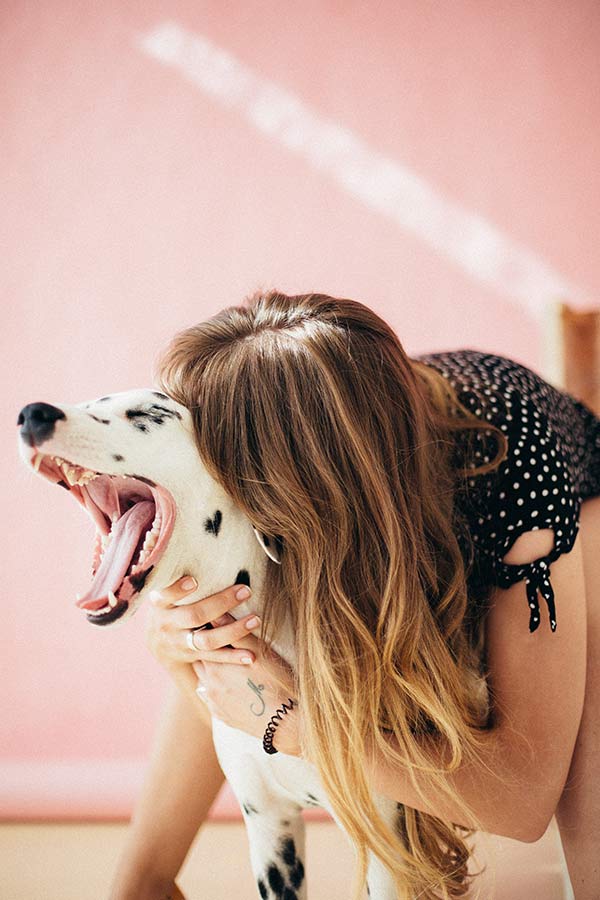By Dr. Sophie Liu, SF SPCA Resident in Behavior Medicine
It’s hard not to feel stressed in today’s environment. From social pressures to work pressures to financial pressures, it is no surprise that surveys routinely find that American workers feel increasingly emotionally stressed. So, of course, it makes sense to turn to our fluffy companions for a daily dose of love, affection, and stress reduction.
But the same qualities that make dogs such great companions also make them highly attuned to our emotions and behaviors. For example, a study in 2009 found that dogs produced stressed behaviors in response to their owners mistakenly scolding them for eating a forbidden treat. Even when the dogs had not done such misdeeds, the owners believed they had and responded with scolding and other distressed behaviors. Thus, even when the dogs had not been guilty, they produced stressed “guilty” behaviors in response. In other words, your emotional distress and the way you express it can have major influences on your dog’s behavior. In fact, a recent study found that dogs tended to mirror their owners’ long-term stress levels regardless of how much exercise or training activities they got!
Conversely, the lack of human stress has also been associated with more positive behavioral outcomes in dogs. Studies have found that strong owner-dog relationships allow dogs to more securely explore their environments and to show less distress to threatening stimuli. In fact, researchers found that the presence of an owner simply sitting and being present with their dog produced less physiologic signs of stress in the dog when confronted by a threatening stranger. So, when you are calm and relaxed, your dog is probably aware of subtle body signals that tell him, “Hey, it’s no big deal.”
Dogs are amazing perceptive creatures, and these qualities have made them our best friends. But it also makes them especially prone to our distress. So, the next time you’re feeling stressed, take a deep breath and smile before you return to Fido, and you might find that both of you start feeling a bit happier!
Citations:
Horowitz A. Disambiguating the "guilty look": salient prompts to a familiar dog behaviour. Behav Processes. 2009 Jul;81(3):447-52.
Horn L, Huber L, Range F. The importance of the secure base effect for domestic dogs – evidence from a manipulative problem-solving task. PLoS One. 2013; 8(5):e65296.
Sundman AS et al. Long-term stress levels are synchronized in dogs and their owners. Scientific Reports. 2019; 9 (7391)










